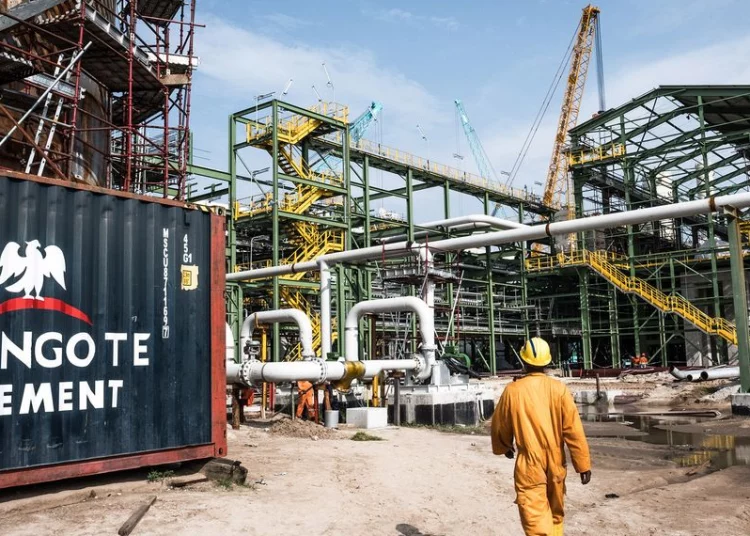The faceoff between Dangote cement industries and the Kogi State government in the past few weeks over the ownership of the Dangote Cement industry located in Obajana in Kogi State Plant has been insightful to say the least.
The entire nation and, specifically, the business community has been intrigued by the dispute over the cement factory and the drama surrounding it thus far.
The dispute came to a head when the Kogi State Government ordered the closure of the factory after it accused Dangote cement of violating agreements. The state government added that the factory has to remain shut in order not to allow the Dangote Group shortchange the state of it’s legitimate earnings.
Both parties have since been at loggerheads over the factory which was privatised by the Kogi government over a decade ago. While the state government commissioned an inquiry into the terms of ownership of the factory, the Dangote conglomerate maintained that its operations are in accordance with the best practices and the law.
Before long, the state assembly was engulfed by a suspicious fire, raising a fresh dimension to the issue as alluded to by the leadership of the Assembly.
A ray of hope, however, shone through the dark tunnel of the dispute. Optics of a parley between the two key actors in the crisis emerged.
A picture of the Nasarawa governor, Abdullahi Sule; Alhaji Aliko Dangote, Governor Yahaya Bello, President Buhari’s CoS, Prof. Ibrahim Gambari and APC chairman Adamu, at the parley to resolve the cement factory acquisition crisis emerged indicating a major step towards resolving the matter.
Also, the National Security Council has ordered the immediate reopening of the Obajana cement factory in Kogi State, an official has disclosed.
Kogi Communities Jubilate As Dangote Cement Reopens Plant
Members of the NSC, headed by President Muhammadu Buhari, include the vice president, national security adviser, inspector general of police, and some ministers, such as those of interior and defence.
The interior minister, Rauf Aregbesola, told journalists after Friday’s NSC meeting that the council ordered the reopening of the factor and urged aggrieved parties to seek legal action.
“The council noted the development in Kogi and has ordered the reopening of the cement factory that is closed down, has advised that all issues relating to that industry or factory should be resolved legally,” Mr Argbesola said.
The Kogi State Government has since resolved to drag Dangote Cement Plc to court over the matter.
The decision to go to court was taken at an emergency meeting last week between key government officials, led by Governor Yahaya Bello and stakeholders representing the different ethnic groups in the state. The Commissioner for Information, Kingsley Fanwo, said that at the meeting, which ran into the early hours of Friday, all stakeholders resolved to head to court in the interest of the people and generations to come.
He said the governor made it clear to the House that there was no going back on the state’s resolve to reclaim its asset, even while he sued for calm in the interest of peace.
As a paper, we believe that the resort to legal means to resolve this dispute is a welcome development. We were worried about the sad trajectory of the dispute going by the events that had played out on the back of this crisis.
Of course, as a newspaper we are not opposed to the pursuit of justice or encourage intimidation of business enterprises. We hold that a tried and trusted means to resolving dispute should be the way to go in the interest of all the parties involved, especially for the people since the whole essence of the plant is to serve a need.
But there is more. We are concerned about the implication of such a crisis for prospective investors.
Just like the Nigerian Economic Summit Group (NESG) pointed out recently, this course of the dispute seem to suggest that such an issue, bordering on investment, cannot be amicably settled using the existing dispute resolution mechanisms.
NESG said the action sends inappropriate signals to investors, both domestic and foreign, and could result in an increase in Nigeria’s risk rating.
“Our inability as a Nation to give the right signalling to investors will lead to subdued investment flows and capital flight which has a number of consequences,” NESG chairman Asue Ighodalo said in a communique that was issued for the board of directors of the group.
Thankfully, calmer heads have prevailed and the matter is being processed for redress in court. We trust that the actors would refrain from self-help and acts that could further undermine the country’s perilous investment climate. We have enough problems already.





